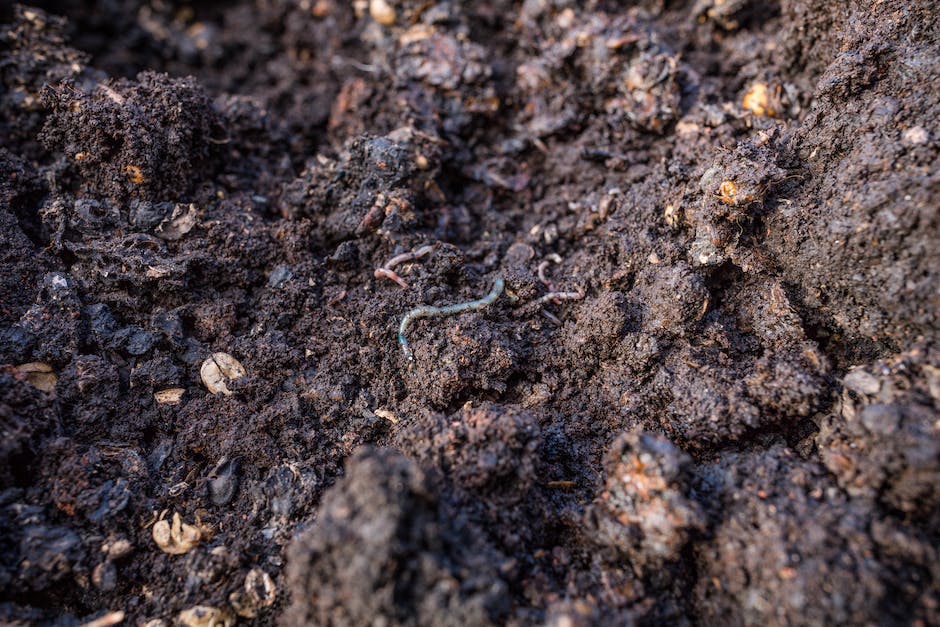What are the Signs of Beneficial Compost in Garden Soil?
Compost is a valuable resource for gardeners as it enriches the soil, improves its structure, and provides essential nutrients for plant growth. However, not all compost is created equal, and it’s important to know the signs of beneficial compost in garden soil. So, what should you look for to ensure that your compost is of high quality and will benefit your plants? Let’s dive into the characteristics of beneficial compost:
Dark Brown or Black Color
One of the first signs of beneficial compost is its rich dark brown or black color. When composting is done correctly, the original materials break down, and the resulting compost takes on a dark coloration. This dark color indicates the presence of decomposed organic matter, which is essential for enriching the soil.
Source: The Spruce
Soil-Like Texture
In addition to its color, beneficial compost should have a crumbly, soil-like texture. The composting process breaks down the original materials, resulting in a substance that resembles soil. A light and crumbly structure indicate that the compost has decomposed sufficiently and is ready for use in the garden.
Source: Oregon State University Extension
Absence of Recognizable Materials
When examining compost, you should not be able to identify the original materials used in the composting process. The breakdown of organic matter should be complete, rendering the compost unrecognizable. This absence of recognizable materials indicates that the compost has matured and is ready to be incorporated into the soil.
Source: The Spruce
Earthy Smell
Beneficial compost in garden soil should have an earthy smell, similar to that of forest soil. This pleasant aroma is an indication that the composting process has been successful and that the compost is rich in organic matter. However, if the compost has a foul odor or smells like ammonia or sulfur, it may not be suitable for use in the garden.
Source: Oregon State University Extension
Moisture Retention and Improved Soil Structure
Another sign of beneficial compost is its ability to retain moisture and improve soil structure. High-quality compost can hold water, reducing the need for frequent irrigation. Additionally, the organic matter in compost helps improve soil structure by enhancing its porosity, drainage, and nutrient-holding capacity.
Source: The Spruce
Additional Considerations
When assessing the quality of compost, it’s important to consider its chemical and physical properties as well. A good compost should have a carbon to nitrogen ratio (C:N) below or equal to 30:1, organic matter content greater than 30%, and a pH level between 6.0 and 8.0. It should also meet state and federal agency standards for metals and have a low level of soluble salts.
Source: Oregon State University Extension
In Conclusion
Beneficial compost in garden soil exhibits several key characteristics. It has a dark brown or black color, a crumbly soil-like texture, no recognizable original materials, an earthy smell, and the ability to retain moisture and improve soil structure. By ensuring that your compost meets these criteria, you can confidently use it to enhance the health and productivity of your garden.
Related Websites:
FAQs:
Q: What is compost and why is it important for garden soil?
Compost is a mixture of decayed organic matter that improves the fertility and structure of soil. It is important for garden soil because it enhances soil structure, increases water retention, improves nutrient availability, suppresses diseases and pests, and reduces the need for chemical fertilizers.
Q: How can I tell if my garden soil has beneficial compost?
Garden soil enriched with beneficial compost has a crumbly, well-drained texture and a dark, rich color due to increased organic matter content. It also supports the presence of worms and other soil-dwelling organisms, indicating nutrient-rich soil.
Q: What are the benefits of compost for plant growth?
Plants thrive in soil enriched with beneficial compost. It promotes enhanced plant growth with healthy, vigorous plants and strong root systems. Compost also improves water retention, preventing excessive drainage and providing moisture for plant uptake.
Q: How does compost help improve water retention in garden soil?
Beneficial compost creates a sponge-like soil structure that holds moisture for plant uptake. It helps the soil retain water and prevents excessive drainage, ensuring that plants have access to adequate moisture.
Q: Why should I incorporate compost into my gardening practices?
Incorporating compost into gardening practices is essential for a healthy and thriving garden. It improves soil structure, increases nutrient content, enhances plant growth, and improves water retention. By using compost, you can reduce the need for chemical fertilizers and contribute to reducing waste.






